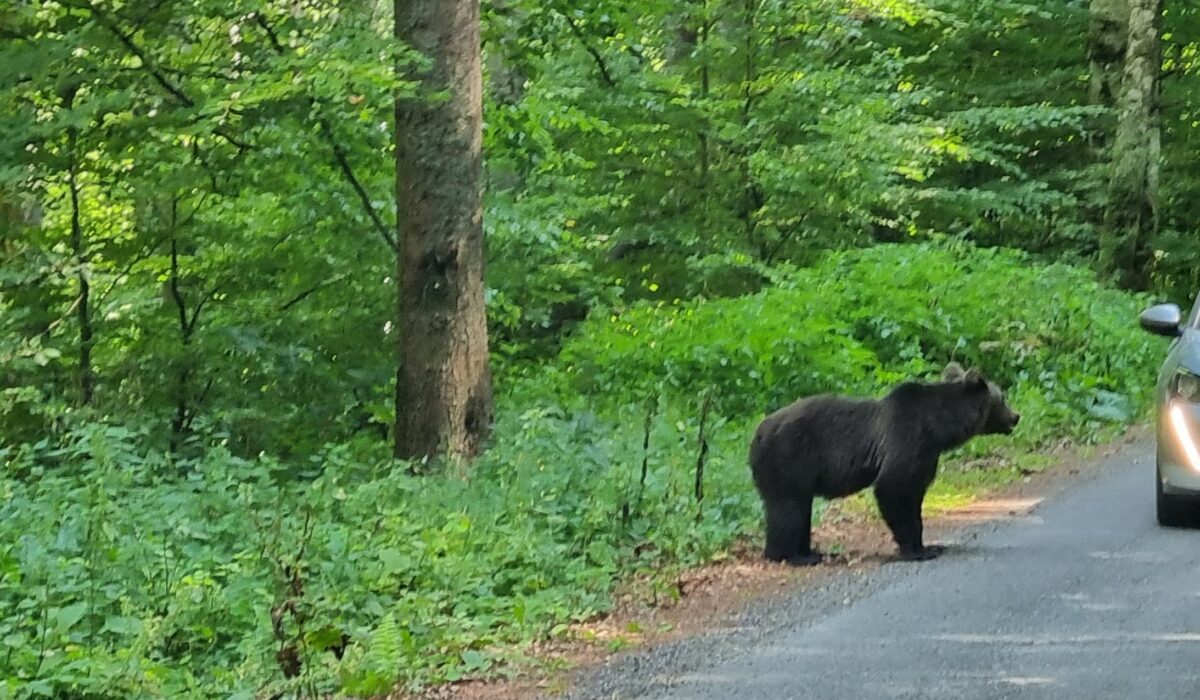Between 24 – 31 October Conservation and Agrarian Change, the 4th Asynchronous Workshop of the Political Ecology Network, is taking place online featuring six sessions of pre-recorded talks and live discussions. This online pre-conference workshop discusses ongoing and emerging political ecology approaches to conservation from a range of perspectives, including the neoliberalisation of nature in protected areas, the opportunities for convivial conservation, other-than-human political ecologies of wildlife conservation, and the demand to cultivate ‘critical reflexivity’ in conservation.
Our colleague Dr George Iordachescu is part of the Other-than-human political ecologies of wildlife conservation session organised by Sayan Banerjee and Anindya Sinha. Together, the presentations reunited under this panel examine what animal lives can teach us about the political ecology of wildlife conservation and explore the linkages between other-than-human agency, political processes and the broader conservation governance of wildlife.
The pre-recorded presentations can be accessed for free for the entire duration of the workshop on the POLLEN platform.

Abstract
Brown bears are Europe’s largest carnivores, strictly protected although not considered endangered in some countries. The bears’ recent, strong comeback, however, poses significant challenges to understanding wildlife conservation politics across the region. Based on four months of multispecies ethnographic engagements in the Romanian Carpathian Mountains, I argue that bears are compelling actors to think with while making sense of the changing landscape of conservation governance. Despite being protected as an orderly keystone species, European brown bears transgress categorisation, being considered charismatic subjects that need protection when ‘in the wild’ but becoming a nuisance when habituated or beastly, a manageable game species. They are, thus, important actors in the current challenges faced by mainstream wildlife conservation, including land abandonment, ecosystem restoration or newer perspectives like rewilding. Governing bears is a messy endeavour; they belong to the state, are managed by game managers, but live their lives regardless of administrative boundaries or legal protection status. This paper advances beastly tales as a methodological option to recentre bears’ lives in conservation practice. Instead of favouring an anthropocentric perspective that makes them objects of intervention, I think with them and investigate what it means to navigate the Anthropocene as political actors. Beastly tales structure imagined or vernacular ecologies of bears beyond conservation policy and scientific practice, illuminating the entanglements of multiple environmental problems – deforestation, wildlife trafficking, waste pollution and habitat destruction – across the region.
We invite everyone to join the live discussion with all the presenters scheduled for Friday 28 October at 14:00-15:00 BST/ 15:00-16:00 CEST, using the link below:
- https://ed-ac-uk.zoom.us/j/87459939144
- Passcode: POLLEN2022
